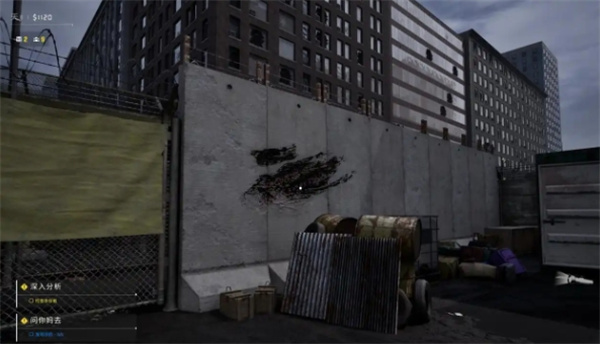cp.c
时间:2006-07-31 来源:anima
/* cp.c -- file copying (main routines)
Copyright (C) 89, 90, 91, 1995-2002 Free Software Foundation.
This program is free software; you can redistribute it and/or modify
it under the terms of the GNU General Public License as published by
the Free Software Foundation; either version 2, or (at your option)
any later version.
This program is distributed in the hope that it will be useful,
but WITHOUT ANY WARRANTY; without even the implied warranty of
MERCHANTABILITY or FITNESS FOR A PARTICULAR PURPOSE. See the
GNU General Public License for more details.
You should have received a copy of the GNU General Public License
along with this program; if not, write to the Free Software Foundation,
Inc., 59 Temple Place - Suite 330, Boston, MA 02111-1307, USA.
Written by Torbjorn Granlund, David MacKenzie, and Jim Meyering. */
#ifdef _AIX
#pragma alloca
#endif
#include <config.h>
#include <stdio.h>
#include <sys/types.h>
#include <assert.h>
#include <getopt.h>
#include "system.h"
#include "argmatch.h"
#include "backupfile.h"
#include "copy.h"
#include "cp-hash.h"
#include "error.h"
#include "dirname.h"
#include "path-concat.h"
#include "quote.h"
#include "acl.h"
#define ASSIGN_BASENAME_STRDUPA(Dest, File_name) \
do \
{ \
char *tmp_abns_; \
ASSIGN_STRDUPA (tmp_abns_, (File_name)); \
strip_trailing_slashes (tmp_abns_); \
Dest = base_name (tmp_abns_); \
} \
while (0)
/* The official name of this program (e.g., no `g' prefix). */
#define PROGRAM_NAME "cp"
#define AUTHORS N_ ("Torbjorn Granlund, David MacKenzie, and Jim Meyering")
#ifndef _POSIX_VERSION
uid_t geteuid ();
#endif
/* Used by do_copy, make_path_private, and re_protect
to keep a list of leading directories whose protections
need to be fixed after copying. */
struct dir_attr
{
mode_t mode;
int mode_valid;
int slash_offset;
struct dir_attr *next;
};
/* For long options that have no equivalent short option, use a
non-character as a pseudo short option, starting with CHAR_MAX + 1. */
enum
{
COPY_CONTENTS_OPTION = CHAR_MAX + 1,
NO_PRESERVE_ATTRIBUTES_OPTION,
PARENTS_OPTION,
PRESERVE_ATTRIBUTES_OPTION,
REPLY_OPTION,
SPARSE_OPTION,
STRIP_TRAILING_SLASHES_OPTION,
TARGET_DIRECTORY_OPTION,
UNLINK_DEST_BEFORE_OPENING
};
/* Initial number of entries in each hash table entry's table of inodes. */
#define INITIAL_HASH_MODULE 100
/* Initial number of entries in the inode hash table. */
#define INITIAL_ENTRY_TAB_SIZE 70
/* The invocation name of this program. */
char *program_name;
/* If nonzero, the command "cp x/e_file e_dir" uses "e_dir/x/e_file"
as its destination instead of the usual "e_dir/e_file." */
static int flag_path = 0;
/* Remove any trailing slashes from each SOURCE argument. */
static int remove_trailing_slashes;
static char const *const sparse_type_string[] =
{
"never", "auto", "always", 0
};
static enum Sparse_type const sparse_type[] =
{
SPARSE_NEVER, SPARSE_AUTO, SPARSE_ALWAYS
};
/* Valid arguments to the `--reply' option. */
static char const* const reply_args[] =
{
"yes", "no", "query", 0
};
/* The values that correspond to the above strings. */
static int const reply_vals[] =
{
I_ALWAYS_YES, I_ALWAYS_NO, I_ASK_USER
};
/* The error code to return to the system. */
static int exit_status = 0;
static struct option const long_opts[] =
{
{"archive", no_argument, NULL, 'a'},
{"backup", optional_argument, NULL, 'b'},
{"copy-contents", no_argument, NULL, COPY_CONTENTS_OPTION},
{"dereference", no_argument, NULL, 'L'},
{"force", no_argument, NULL, 'f'},
{"interactive", no_argument, NULL, 'i'},
{"link", no_argument, NULL, 'l'},
{"no-dereference", no_argument, NULL, 'P'},
{"no-preserve", required_argument, NULL, NO_PRESERVE_ATTRIBUTES_OPTION},
{"one-file-system", no_argument, NULL, 'x'},
{"parents", no_argument, NULL, PARENTS_OPTION},
{"path", no_argument, NULL, PARENTS_OPTION}, /* Deprecated. */
{"preserve", optional_argument, NULL, PRESERVE_ATTRIBUTES_OPTION},
{"recursive", no_argument, NULL, 'R'},
{"remove-destination", no_argument, NULL, UNLINK_DEST_BEFORE_OPENING},
{"reply", required_argument, NULL, REPLY_OPTION},
{"sparse", required_argument, NULL, SPARSE_OPTION},
{"strip-trailing-slashes", no_argument, NULL, STRIP_TRAILING_SLASHES_OPTION},
{"suffix", required_argument, NULL, 'S'},
{"symbolic-link", no_argument, NULL, 's'},
{"target-directory", required_argument, NULL, TARGET_DIRECTORY_OPTION},
{"update", no_argument, NULL, 'u'},
{"verbose", no_argument, NULL, 'v'},
{"version-control", required_argument, NULL, 'V'}, /* Deprecated. FIXME. */
{GETOPT_HELP_OPTION_DECL},
{GETOPT_VERSION_OPTION_DECL},
{NULL, 0, NULL, 0}
};
void
usage (int status)
{
if (status != 0)
fprintf (stderr, _("Try `%s --help' for more information.\n"),
program_name);
else
{
printf (_("\
Usage: %s [OPTION]... SOURCE DEST\n\
or: %s [OPTION]... SOURCE... DIRECTORY\n\
or: %s [OPTION]... --target-directory=DIRECTORY SOURCE...\n\
"),
program_name, program_name, program_name);
fputs (_("\
Copy SOURCE to DEST, or multiple SOURCE(s) to DIRECTORY.\n\
\n\
"), stdout);
fputs (_("\
Mandatory arguments to long options are mandatory for short options too.\n\
"), stdout);
fputs (_("\
-a, --archive same as -dpR\n\
--backup[=CONTROL] make a backup of each existing destination file\n\
-b like --backup but does not accept an argument\n\
--copy-contents copy contents of special files when recursive\n\
-d same as --no-dereference --preserve=link\n\
"), stdout);
fputs (_("\
--no-dereference never follow symbolic links\n\
-f, --force if an existing destination file cannot be\n\
opened, remove it and try again\n\
-i, --interactive prompt before overwrite\n\
-H follow command-line symbolic links\n\
"), stdout);
fputs (_("\
-l, --link link files instead of copying\n\
-L, --dereference always follow symbolic links\n\
-p same as --preserve=mode,ownership,timestamps\n\
--preserve[=ATTR_LIST] preserve the specified attributes (default:\n\
mode,ownership,timestamps), if possible\n\
additional attributes: links, all\n\
"), stdout);
fputs (_("\
--no-preserve=ATTR_LIST don't preserve the specified attributes\n\
--parents append source path to DIRECTORY\n\
-P same as `--no-dereference'\n\
"), stdout);
fputs (_("\
-R, -r, --recursive copy directories recursively\n\
--remove-destination remove each existing destination file before\n\
attempting to open it (contrast with --force)\n\
"), stdout);
fputs (_("\
--reply={yes,no,query} specify how to handle the prompt about an\n\
existing destination file\n\
--sparse=WHEN control creation of sparse files\n\
--strip-trailing-slashes remove any trailing slashes from each SOURCE\n\
argument\n\
"), stdout);
fputs (_("\
-s, --symbolic-link make symbolic links instead of copying\n\
-S, --suffix=SUFFIX override the usual backup suffix\n\
--target-directory=DIRECTORY move all SOURCE arguments into DIRECTORY\n\
"), stdout);
fputs (_("\
-u, --update copy only when the SOURCE file is newer\n\
than the destination file or when the\n\
destination file is missing\n\
-v, --verbose explain what is being done\n\
-x, --one-file-system stay on this file system\n\
"), stdout);
fputs (HELP_OPTION_DESCRIPTION, stdout);
fputs (VERSION_OPTION_DESCRIPTION, stdout);
fputs (_("\
\n\
By default, sparse SOURCE files are detected by a crude heuristic and the\n\
corresponding DEST file is made sparse as well. That is the behavior\n\
selected by --sparse=auto. Specify --sparse=always to create a sparse DEST\n\
file whenever the SOURCE file contains a long enough sequence of zero bytes.\n\
Use --sparse=never to inhibit creation of sparse files.\n\
\n\
"), stdout);
fputs (_("\
The backup suffix is `~', unless set with --suffix or SIMPLE_BACKUP_SUFFIX.\n\
The version control method may be selected via the --backup option or through\n\
the VERSION_CONTROL environment variable. Here are the values:\n\
\n\
"), stdout);
fputs (_("\
none, off never make backups (even if --backup is given)\n\
numbered, t make numbered backups\n\
existing, nil numbered if numbered backups exist, simple otherwise\n\
simple, never always make simple backups\n\
"), stdout);
fputs (_("\
\n\
As a special case, cp makes a backup of SOURCE when the force and backup\n\
options are given and SOURCE and DEST are the same name for an existing,\n\
regular file.\n\
"), stdout);
printf (_("\nReport bugs to <%s>.\n"), PACKAGE_BUGREPORT);
}
exit (status);
}
/* Ensure that the parent directories of CONST_DST_PATH have the
correct protections, for the --parents option. This is done
after all copying has been completed, to allow permissions
that don't include user write/execute.
SRC_OFFSET is the index in CONST_DST_PATH of the beginning of the
source directory name.
ATTR_LIST is a null-terminated linked list of structures that
indicates the end of the filename of each intermediate directory
in CONST_DST_PATH that may need to have its attributes changed.
The command `cp --parents --preserve a/b/c d/e_dir' changes the
attributes of the directories d/e_dir/a and d/e_dir/a/b to match
the corresponding source directories regardless of whether they
existed before the `cp' command was given.
Return 0 if the parent of CONST_DST_PATH and any intermediate
directories specified by ATTR_LIST have the proper permissions
when done, otherwise 1. */
static int
re_protect (const char *const_dst_path, int src_offset,
struct dir_attr *attr_list, const struct cp_options *x)
{
struct dir_attr *p;
char *dst_path; /* A copy of CONST_DST_PATH we can change. */
char *src_path; /* The source name in `dst_path'. */
uid_t myeuid = geteuid ();
mode_t umask_kill = ~umask (0);
dst_path = (char *) alloca (strlen (const_dst_path) + 1);
strcpy (dst_path, const_dst_path);
src_path = dst_path + src_offset;
for (p = attr_list; p; p = p->next)
{
struct stat src_sb;
dst_path[p->slash_offset] = '\0';
if ((*(x->xstat)) (src_path, &src_sb))
{
error (0, errno, _("failed to get attributes of %s"),
quote (src_path));
return 1;
}
/* Adjust the times (and if possible, ownership) for the copy.
chown turns off set[ug]id bits for non-root,
so do the chmod last. */
if (x->preserve_timestamps)
{
struct utimbuf utb;
/* There's currently no interface to set file timestamps with
better than 1-second resolution, so discard any fractional
part of the source timestamp. */
utb.actime = src_sb.st_atime;
utb.modtime = src_sb.st_mtime;
if (utime (dst_path, &utb))
{
error (0, errno, _("failed to preserve times for %s"),
quote (dst_path));
return 1;
}
}
if (x->preserve_ownership)
{
/* If non-root uses -p, it's ok if we can't preserve ownership.
But root probably wants to know, e.g. if NFS disallows it,
or if the target system doesn't support file ownership. */
if (chown (dst_path, src_sb.st_uid, src_sb.st_gid)
&& ((errno != EPERM && errno != EINVAL) || myeuid == 0))
{
error (0, errno, _("failed to preserve ownership for %s"),
quote (dst_path));
return 1;
}
}
if (x->preserve_mode)
{
if (copy_acl (src_path, dst_path, src_sb.st_mode))
return 1;
}
else if (p->mode_valid)
{
if (chmod (dst_path, p->mode))
{
error (0, errno, _("failed to preserve permissions for %s"),
quote (dst_path));
return 1;
}
}
dst_path[p->slash_offset] = '/';
}
return 0;
}
/* Ensure that the parent directory of CONST_DIRPATH exists, for
the --parents option.
SRC_OFFSET is the index in CONST_DIRPATH (which is a destination
path) of the beginning of the source directory name.
Create any leading directories that don't already exist.
If VERBOSE_FMT_STRING is nonzero, use it as a printf format
string for printing a message after successfully making a directory.
The format should take two string arguments: the names of the
source and destination directories.
Creates a linked list of attributes of intermediate directories,
*ATTR_LIST, for re_protect to use after calling copy.
Sets *NEW_DST to 1 if this function creates parent of CONST_DIRPATH.
Return 0 if parent of CONST_DIRPATH exists as a directory with the proper
permissions when done, otherwise 1. */
/* FIXME: find a way to synch this function with the one in lib/makepath.c. */
static int
make_path_private (const char *const_dirpath, int src_offset,
const char *verbose_fmt_string, struct dir_attr **attr_list,
int *new_dst, struct cp_options const *x)
{
struct stat stats;
char *dirpath; /* A copy of CONST_DIRPATH we can change. */
char *src; /* Source name in `dirpath'. */
char *dst_dirname; /* Leading path of `dirpath'. */
size_t dirlen; /* Length of leading path of `dirpath'. */
dirpath = (char *) alloca (strlen (const_dirpath) + 1);
strcpy (dirpath, const_dirpath);
src = dirpath + src_offset;
dirlen = dir_len (dirpath);
dst_dirname = (char *) alloca (dirlen + 1);
memcpy (dst_dirname, dirpath, dirlen);
dst_dirname[dirlen] = '\0';
*attr_list = NULL;
if ((*x->xstat) (dst_dirname, &stats))
{
/* Parent of CONST_DIRNAME does not exist.
Make all missing intermediate directories. */
char *slash;
slash = src;
while (*slash == '/')
slash++;
while ((slash = strchr (slash, '/')))
{
/* Add this directory to the list of directories whose modes need
fixing later. */
struct dir_attr *new =
(struct dir_attr *) xmalloc (sizeof (struct dir_attr));
new->slash_offset = slash - dirpath;
new->next = *attr_list;
*attr_list = new;
*slash = '\0';
if ((*x->xstat) (dirpath, &stats))
{
mode_t src_mode;
/* This element of the path does not exist. We must set
*new_dst and new->mode inside this loop because,
for example, in the command `cp --parents ../a/../b/c e_dir',
make_path_private creates only e_dir/../a if ./b already
exists. */
*new_dst = 1;
if ((*x->xstat) (src, &stats))
{
error (0, errno, _("failed to get attributes of %s"),
quote (src));
return 1;
}
src_mode = stats.st_mode;
if (mkdir (dirpath, src_mode))
{
error (0, errno, _("cannot make directory %s"),
quote (dirpath));
return 1;
}
else
{
if (verbose_fmt_string != NULL)
printf (verbose_fmt_string, src, dirpath);
}
/* We need search and write permissions to the new directory
for writing the directory's contents. Check if these
permissions are there. */
if (lstat (dirpath, &stats))
{
error (0, errno, _("failed to get attributes of %s"),
quote (dirpath));
return 1;
}
else
{
if (x->preserve_mode) {
new->mode = src_mode;
new->mode_valid = (src_mode != stats.st_mode);
} else {
new->mode = stats.st_mode;
new->mode_valid = 0;
}
if ((stats.st_mode & S_IRWXU) != S_IRWXU)
{
/* Make the new directory searchable and writable. The
original permissions will be restored later. */
new->mode_valid = 1;
if (chmod (dirpath, stats.st_mode | S_IRWXU))
{
error (0, errno, _("setting permissions for %s"),
quote (dirpath));
return 1;
}
}
}
}
else if (!S_ISDIR (stats.st_mode))
{
error (0, 0, _("%s exists but is not a directory"),
quote (dirpath));
return 1;
}
else
{
new->mode_valid = 0;
*new_dst = 0;
}
*slash++ = '/';
/* Avoid unnecessary calls to `stat' when given
pathnames containing multiple adjacent slashes. */
while (*slash == '/')
slash++;
}
}
/* We get here if the parent of `dirpath' already exists. */
else if (!S_ISDIR (stats.st_mode))
{
error (0, 0, _("%s exists but is not a directory"), quote (dst_dirname));
return 1;
}
else
{
*new_dst = 0;
}
return 0;
}
/* Scan the arguments, and copy each by calling copy.
Return 0 if successful, 1 if any errors occur. */
static int
do_copy (int n_files, char **file, const char *target_directory,
struct cp_options *x)
{
const char *dest;
struct stat sb;
int new_dst = 0;
int ret = 0;
int dest_is_dir = 0;
if (n_files <= 0)
{
error (0, 0, _("missing file arguments"));
usage (EXIT_FAILURE);
}
if (n_files == 1 && !target_directory)
{
error (0, 0, _("missing destination file"));
usage (EXIT_FAILURE);
}
if (target_directory)
dest = target_directory;
else
{
dest = file[n_files - 1];
--n_files;
}
/* Initialize these hash tables only if we'll need them.
The problems they're used to detect can arise only if
there are two or more files to copy. */
if (n_files >= 2)
{
dest_info_init (x);
src_info_init (x);
}
if (lstat (dest, &sb))
{
if (errno != ENOENT)
{
error (0, errno, _("accessing %s"), quote (dest));
return 1;
}
new_dst = 1;
}
else
{
struct stat sbx;
/* If `dest' is not a symlink to a nonexistent file, use
the results of stat instead of lstat, so we can copy files
into symlinks to directories. */
if (stat (dest, &sbx) == 0)
sb = sbx;
dest_is_dir = S_ISDIR (sb.st_mode);
}
if (!dest_is_dir)
{
if (target_directory)
{
error (0, 0, _("%s: specified target is not a directory"),
quote (dest));
usage (EXIT_FAILURE);
}
if (n_files > 1)
{
error (0, 0,
_("copying multiple files, but last argument %s is not a directory"),
quote (dest));
usage (EXIT_FAILURE);
}
}
if (dest_is_dir)
{
/* cp file1...filen edir
Copy the files `file1' through `filen'
to the existing directory `edir'. */
int i;
for (i = 0; i < n_files; i++)
{
char *dst_path;
int parent_exists = 1; /* True if dir_name (dst_path) exists. */
struct dir_attr *attr_list;
char *arg_in_concat = NULL;
char *arg = file[i];
/* Trailing slashes are meaningful (i.e., maybe worth preserving)
only in the source file names. */
if (remove_trailing_slashes)
strip_trailing_slashes (arg);
if (flag_path)
{
char *arg_no_trailing_slash;
/* Use `arg' without trailing slashes in constructing destination
file names. Otherwise, we can end up trying to create a
directory via `mkdir ("dst/foo/"...', which is not portable.
It fails, due to the trailing slash, on at least
NetBSD 1.[34] systems. */
ASSIGN_STRDUPA (arg_no_trailing_slash, arg);
strip_trailing_slashes (arg_no_trailing_slash);
/* Append all of `arg' (minus any trailing slash) to `dest'. */
dst_path = path_concat (dest, arg_no_trailing_slash,
&arg_in_concat);
if (dst_path == NULL)
xalloc_die ();
/* For --parents, we have to make sure that the directory
dir_name (dst_path) exists. We may have to create a few
leading directories. */
parent_exists = !make_path_private (dst_path,
arg_in_concat - dst_path,
(x->verbose
? "%s -> %s\n" : NULL),
&attr_list, &new_dst, x);
}
else
{
char *arg_base;
/* Append the last component of `arg' to `dest'. */
ASSIGN_BASENAME_STRDUPA (arg_base, arg);
/* For `cp -R source/.. dest', don't copy into `dest/..'. */
dst_path = (STREQ (arg_base, "..")
? xstrdup (dest)
: path_concat (dest, arg_base, NULL));
}
if (!parent_exists)
{
/* make_path_private failed, so don't even attempt the copy. */
ret = 1;
}
else
{
int copy_into_self;
ret |= copy (arg, dst_path, new_dst, x, ©_into_self, NULL);
if (flag_path)
{
ret |= re_protect (dst_path, arg_in_concat - dst_path,
attr_list, x);
}
}
free (dst_path);
}
return ret;
}
else /* if (n_files == 1) */
{
char *new_dest;
char *source;
int unused;
struct stat source_stats;
if (flag_path)
{
error (0, 0,
_("when preserving paths, the destination must be a directory"));
usage (EXIT_FAILURE);
}
source = file[0];
/* When the force and backup options have been specified and
the source and destination are the same name for an existing
regular file, convert the user's command, e.g.,
`cp --force --backup foo foo' to `cp --force foo fooSUFFIX'
where SUFFIX is determined by any version control options used. */
if (x->unlink_dest_after_failed_open
&& x->backup_type != none
&& STREQ (source, dest)
&& !new_dst && S_ISREG (sb.st_mode))
{
static struct cp_options x_tmp;
new_dest = find_backup_file_name (dest, x->backup_type);
/* Set x->backup_type to `none' so that the normal backup
mechanism is not used when performing the actual copy.
backup_type must be set to `none' only *after* the above
call to find_backup_file_name -- that function uses
backup_type to determine the suffix it applies. */
x_tmp = *x;
x_tmp.backup_type = none;
x = &x_tmp;
if (new_dest == NULL)
xalloc_die ();
}
/* When the destination is specified with a trailing slash and the
source exists but is not a directory, convert the user's command
`cp source dest/' to `cp source dest/basename(source)'. Doing
this ensures that the command `cp non-directory file/' will now
fail rather than performing the copy. COPY diagnoses the case of
`cp directory non-directory'. */
else if (dest[strlen (dest) - 1] == '/'
&& lstat (source, &source_stats) == 0
&& !S_ISDIR (source_stats.st_mode))
{
char *source_base;
ASSIGN_BASENAME_STRDUPA (source_base, source);
new_dest = (char *) alloca (strlen (dest)
+ strlen (source_base) + 1);
stpcpy (stpcpy (new_dest, dest), source_base);
}
else
{
new_dest = (char *) dest;
}
return copy (source, new_dest, new_dst, x, &unused, NULL);
}
/* unreachable */
}
static void
cp_option_init (struct cp_options *x)
{
x->copy_as_regular = 1;
x->dereference = DEREF_UNDEFINED;
x->unlink_dest_before_opening = 0;
x->unlink_dest_after_failed_open = 0;
x->hard_link = 0;
x->interactive = I_UNSPECIFIED;
x->myeuid = geteuid ();
x->move_mode = 0;
x->one_file_system = 0;
x->preserve_ownership = 0;
x->preserve_links = 0;
x->preserve_mode = 0;
x->preserve_timestamps = 0;
x->require_preserve = 0;
x->recursive = 0;
x->sparse_mode = SPARSE_AUTO;
x->symbolic_link = 0;
x->set_mode = 0;
x->mode = 0;
/* Not used. */
x->stdin_tty = 0;
x->update = 0;
x->verbose = 0;
x->dest_info = NULL;
x->src_info = NULL;
}
/* Given a string, ARG, containing a comma-separated list of arguments
to the --preserve option, set the appropriate fields of X to ON_OFF. */
static void
decode_preserve_arg (char const *arg, struct cp_options *x, int on_off)
{
enum File_attribute
{
PRESERVE_MODE,
PRESERVE_TIMESTAMPS,
PRESERVE_OWNERSHIP,
PRESERVE_LINK,
PRESERVE_ALL
};
static enum File_attribute const preserve_vals[] =
{
PRESERVE_MODE, PRESERVE_TIMESTAMPS,
PRESERVE_OWNERSHIP, PRESERVE_LINK, PRESERVE_ALL
};
/* Valid arguments to the `--reply' option. */
static char const* const preserve_args[] =
{
"mode", "timestamps",
"ownership", "links", "all", 0
};
char *arg_writable = xstrdup (arg);
char *s = arg_writable;
do
{
/* find next comma */
char *comma = strchr (s, ',');
enum File_attribute val;
/* put a NUL in its place */
if (comma)
*comma++ = 0;
/* process S. */
val = XARGMATCH ("--preserve", s, preserve_args, preserve_vals);
switch (val)
{
case PRESERVE_MODE:
x->preserve_mode = on_off;
break;
case PRESERVE_TIMESTAMPS:
x->preserve_timestamps = on_off;
break;
case PRESERVE_OWNERSHIP:
x->preserve_ownership = on_off;
break;
case PRESERVE_LINK:
x->preserve_links = on_off;
break;
case PRESERVE_ALL:
x->preserve_mode = on_off;
x->preserve_timestamps = on_off;
x->preserve_ownership = on_off;
x->preserve_links = on_off;
break;
default:
abort ();
}
s = comma;
}
while (s);
free (arg_writable);
}
int
main (int argc, char **argv)
{
int c;
int make_backups = 0;
char *backup_suffix_string;
char *version_control_string = NULL;
struct cp_options x;
int copy_contents = 0;
char *target_directory = NULL;
program_name = argv[0];
setlocale (LC_ALL, "");
bindtextdomain (PACKAGE, LOCALEDIR);
textdomain (PACKAGE);
atexit (close_stdout);
cp_option_init (&x);
/* FIXME: consider not calling getenv for SIMPLE_BACKUP_SUFFIX unless
we'll actually use backup_suffix_string. */
backup_suffix_string = getenv ("SIMPLE_BACKUP_SUFFIX");
while ((c = getopt_long (argc, argv, "abdfHilLprsuvxPRS:V:", long_opts, NULL))
!= -1)
{
switch (c)
{
case 0:
break;
case SPARSE_OPTION:
x.sparse_mode = XARGMATCH ("--sparse", optarg,
sparse_type_string, sparse_type);
break;
case 'a': /* Like -dpPR. */
x.dereference = DEREF_NEVER;
x.preserve_links = 1;
x.preserve_ownership = 1;
x.preserve_mode = 1;
x.preserve_timestamps = 1;
x.require_preserve = 1;
x.recursive = 1;
break;
case 'V': /* FIXME: this is deprecated. Remove it in 2001. */
error (0, 0,
_("warning: --version-control (-V) is obsolete; support for\
it\nwill be removed in some future release. Use --backup=%s instead."
), optarg);
/* Fall through. */
case 'b':
make_backups = 1;
if (optarg)
version_control_string = optarg;
break;
case COPY_CONTENTS_OPTION:
copy_contents = 1;
break;
case 'd':
x.preserve_links = 1;
x.dereference = DEREF_NEVER;
break;
case 'f':
x.interactive = 0;
x.unlink_dest_after_failed_open = 1;
break;
case 'H':
x.dereference = DEREF_COMMAND_LINE_ARGUMENTS;
break;
case 'i':
x.interactive = I_ASK_USER;
break;
case 'l':
x.hard_link = 1;
break;
case 'L':
x.dereference = DEREF_ALWAYS;
break;
case 'P':
x.dereference = DEREF_NEVER;
break;
case NO_PRESERVE_ATTRIBUTES_OPTION:
decode_preserve_arg (optarg, &x, 0);
break;
case PRESERVE_ATTRIBUTES_OPTION:
if (optarg == NULL)
{
/* Fall through to the case for `p' below. */
}
else
{
decode_preserve_arg (optarg, &x, 1);
x.require_preserve = 1;
break;
}
case 'p':
x.preserve_ownership = 1;
x.preserve_mode = 1;
x.preserve_timestamps = 1;
x.require_preserve = 1;
break;
case PARENTS_OPTION:
flag_path = 1;
break;
case 'r':
case 'R':
x.recursive = 1;
break;
case REPLY_OPTION:
x.interactive = XARGMATCH ("--reply", optarg,
reply_args, reply_vals);
break;
case UNLINK_DEST_BEFORE_OPENING:
x.unlink_dest_before_opening = 1;
break;
case STRIP_TRAILING_SLASHES_OPTION:
remove_trailing_slashes = 1;
break;
case 's':
#ifdef S_ISLNK
x.symbolic_link = 1;
#else
error (EXIT_FAILURE, 0,
_("symbolic links are not supported on this system"));
#endif
break;
case TARGET_DIRECTORY_OPTION:
target_directory = optarg;
break;
case 'u':
x.update = 1;
break;
case 'v':
x.verbose = 1;
break;
case 'x':
x.one_file_system = 1;
break;
case 'S':
make_backups = 1;
backup_suffix_string = optarg;
break;
case_GETOPT_HELP_CHAR;
case_GETOPT_VERSION_CHAR (PROGRAM_NAME, AUTHORS);
default:
usage (EXIT_FAILURE);
}
}
if (x.hard_link && x.symbolic_link)
{
error (0, 0, _("cannot make both hard and symbolic links"));
usage (EXIT_FAILURE);
}
if (backup_suffix_string)
simple_backup_suffix = xstrdup (backup_suffix_string);
x.backup_type = (make_backups
? xget_version (_("backup type"),
version_control_string)
: none);
if (x.dereference == DEREF_UNDEFINED)
{
if (x.recursive)
/* This is compatible with FreeBSD. */
x.dereference = DEREF_NEVER;
else
x.dereference = DEREF_ALWAYS;
}
/* The key difference between -d (--no-dereference) and not is the version
of `stat' to call. */
if (x.dereference == DEREF_NEVER)
x.xstat = lstat;
else
{
/* For DEREF_COMMAND_LINE_ARGUMENTS, x.xstat must be stat for
each command line argument, but must later be `lstat' for
any symlinks that are found via recursive traversal. */
x.xstat = stat;
}
if (x.recursive)
x.copy_as_regular = copy_contents;
/* If --force (-f) was specified and we're in link-creation mode,
first remove any existing destination file. */
if (x.unlink_dest_after_failed_open && (x.hard_link || x.symbolic_link))
x.unlink_dest_before_opening = 1;
/* Allocate space for remembering copied and created files. */
hash_init ();
exit_status |= do_copy (argc - optind, argv + optind, target_directory, &x);
forget_all ();
exit (exit_status);
}
Copyright (C) 89, 90, 91, 1995-2002 Free Software Foundation.
This program is free software; you can redistribute it and/or modify
it under the terms of the GNU General Public License as published by
the Free Software Foundation; either version 2, or (at your option)
any later version.
This program is distributed in the hope that it will be useful,
but WITHOUT ANY WARRANTY; without even the implied warranty of
MERCHANTABILITY or FITNESS FOR A PARTICULAR PURPOSE. See the
GNU General Public License for more details.
You should have received a copy of the GNU General Public License
along with this program; if not, write to the Free Software Foundation,
Inc., 59 Temple Place - Suite 330, Boston, MA 02111-1307, USA.
Written by Torbjorn Granlund, David MacKenzie, and Jim Meyering. */
#ifdef _AIX
#pragma alloca
#endif
#include <config.h>
#include <stdio.h>
#include <sys/types.h>
#include <assert.h>
#include <getopt.h>
#include "system.h"
#include "argmatch.h"
#include "backupfile.h"
#include "copy.h"
#include "cp-hash.h"
#include "error.h"
#include "dirname.h"
#include "path-concat.h"
#include "quote.h"
#include "acl.h"
#define ASSIGN_BASENAME_STRDUPA(Dest, File_name) \
do \
{ \
char *tmp_abns_; \
ASSIGN_STRDUPA (tmp_abns_, (File_name)); \
strip_trailing_slashes (tmp_abns_); \
Dest = base_name (tmp_abns_); \
} \
while (0)
/* The official name of this program (e.g., no `g' prefix). */
#define PROGRAM_NAME "cp"
#define AUTHORS N_ ("Torbjorn Granlund, David MacKenzie, and Jim Meyering")
#ifndef _POSIX_VERSION
uid_t geteuid ();
#endif
/* Used by do_copy, make_path_private, and re_protect
to keep a list of leading directories whose protections
need to be fixed after copying. */
struct dir_attr
{
mode_t mode;
int mode_valid;
int slash_offset;
struct dir_attr *next;
};
/* For long options that have no equivalent short option, use a
non-character as a pseudo short option, starting with CHAR_MAX + 1. */
enum
{
COPY_CONTENTS_OPTION = CHAR_MAX + 1,
NO_PRESERVE_ATTRIBUTES_OPTION,
PARENTS_OPTION,
PRESERVE_ATTRIBUTES_OPTION,
REPLY_OPTION,
SPARSE_OPTION,
STRIP_TRAILING_SLASHES_OPTION,
TARGET_DIRECTORY_OPTION,
UNLINK_DEST_BEFORE_OPENING
};
/* Initial number of entries in each hash table entry's table of inodes. */
#define INITIAL_HASH_MODULE 100
/* Initial number of entries in the inode hash table. */
#define INITIAL_ENTRY_TAB_SIZE 70
/* The invocation name of this program. */
char *program_name;
/* If nonzero, the command "cp x/e_file e_dir" uses "e_dir/x/e_file"
as its destination instead of the usual "e_dir/e_file." */
static int flag_path = 0;
/* Remove any trailing slashes from each SOURCE argument. */
static int remove_trailing_slashes;
static char const *const sparse_type_string[] =
{
"never", "auto", "always", 0
};
static enum Sparse_type const sparse_type[] =
{
SPARSE_NEVER, SPARSE_AUTO, SPARSE_ALWAYS
};
/* Valid arguments to the `--reply' option. */
static char const* const reply_args[] =
{
"yes", "no", "query", 0
};
/* The values that correspond to the above strings. */
static int const reply_vals[] =
{
I_ALWAYS_YES, I_ALWAYS_NO, I_ASK_USER
};
/* The error code to return to the system. */
static int exit_status = 0;
static struct option const long_opts[] =
{
{"archive", no_argument, NULL, 'a'},
{"backup", optional_argument, NULL, 'b'},
{"copy-contents", no_argument, NULL, COPY_CONTENTS_OPTION},
{"dereference", no_argument, NULL, 'L'},
{"force", no_argument, NULL, 'f'},
{"interactive", no_argument, NULL, 'i'},
{"link", no_argument, NULL, 'l'},
{"no-dereference", no_argument, NULL, 'P'},
{"no-preserve", required_argument, NULL, NO_PRESERVE_ATTRIBUTES_OPTION},
{"one-file-system", no_argument, NULL, 'x'},
{"parents", no_argument, NULL, PARENTS_OPTION},
{"path", no_argument, NULL, PARENTS_OPTION}, /* Deprecated. */
{"preserve", optional_argument, NULL, PRESERVE_ATTRIBUTES_OPTION},
{"recursive", no_argument, NULL, 'R'},
{"remove-destination", no_argument, NULL, UNLINK_DEST_BEFORE_OPENING},
{"reply", required_argument, NULL, REPLY_OPTION},
{"sparse", required_argument, NULL, SPARSE_OPTION},
{"strip-trailing-slashes", no_argument, NULL, STRIP_TRAILING_SLASHES_OPTION},
{"suffix", required_argument, NULL, 'S'},
{"symbolic-link", no_argument, NULL, 's'},
{"target-directory", required_argument, NULL, TARGET_DIRECTORY_OPTION},
{"update", no_argument, NULL, 'u'},
{"verbose", no_argument, NULL, 'v'},
{"version-control", required_argument, NULL, 'V'}, /* Deprecated. FIXME. */
{GETOPT_HELP_OPTION_DECL},
{GETOPT_VERSION_OPTION_DECL},
{NULL, 0, NULL, 0}
};
void
usage (int status)
{
if (status != 0)
fprintf (stderr, _("Try `%s --help' for more information.\n"),
program_name);
else
{
printf (_("\
Usage: %s [OPTION]... SOURCE DEST\n\
or: %s [OPTION]... SOURCE... DIRECTORY\n\
or: %s [OPTION]... --target-directory=DIRECTORY SOURCE...\n\
"),
program_name, program_name, program_name);
fputs (_("\
Copy SOURCE to DEST, or multiple SOURCE(s) to DIRECTORY.\n\
\n\
"), stdout);
fputs (_("\
Mandatory arguments to long options are mandatory for short options too.\n\
"), stdout);
fputs (_("\
-a, --archive same as -dpR\n\
--backup[=CONTROL] make a backup of each existing destination file\n\
-b like --backup but does not accept an argument\n\
--copy-contents copy contents of special files when recursive\n\
-d same as --no-dereference --preserve=link\n\
"), stdout);
fputs (_("\
--no-dereference never follow symbolic links\n\
-f, --force if an existing destination file cannot be\n\
opened, remove it and try again\n\
-i, --interactive prompt before overwrite\n\
-H follow command-line symbolic links\n\
"), stdout);
fputs (_("\
-l, --link link files instead of copying\n\
-L, --dereference always follow symbolic links\n\
-p same as --preserve=mode,ownership,timestamps\n\
--preserve[=ATTR_LIST] preserve the specified attributes (default:\n\
mode,ownership,timestamps), if possible\n\
additional attributes: links, all\n\
"), stdout);
fputs (_("\
--no-preserve=ATTR_LIST don't preserve the specified attributes\n\
--parents append source path to DIRECTORY\n\
-P same as `--no-dereference'\n\
"), stdout);
fputs (_("\
-R, -r, --recursive copy directories recursively\n\
--remove-destination remove each existing destination file before\n\
attempting to open it (contrast with --force)\n\
"), stdout);
fputs (_("\
--reply={yes,no,query} specify how to handle the prompt about an\n\
existing destination file\n\
--sparse=WHEN control creation of sparse files\n\
--strip-trailing-slashes remove any trailing slashes from each SOURCE\n\
argument\n\
"), stdout);
fputs (_("\
-s, --symbolic-link make symbolic links instead of copying\n\
-S, --suffix=SUFFIX override the usual backup suffix\n\
--target-directory=DIRECTORY move all SOURCE arguments into DIRECTORY\n\
"), stdout);
fputs (_("\
-u, --update copy only when the SOURCE file is newer\n\
than the destination file or when the\n\
destination file is missing\n\
-v, --verbose explain what is being done\n\
-x, --one-file-system stay on this file system\n\
"), stdout);
fputs (HELP_OPTION_DESCRIPTION, stdout);
fputs (VERSION_OPTION_DESCRIPTION, stdout);
fputs (_("\
\n\
By default, sparse SOURCE files are detected by a crude heuristic and the\n\
corresponding DEST file is made sparse as well. That is the behavior\n\
selected by --sparse=auto. Specify --sparse=always to create a sparse DEST\n\
file whenever the SOURCE file contains a long enough sequence of zero bytes.\n\
Use --sparse=never to inhibit creation of sparse files.\n\
\n\
"), stdout);
fputs (_("\
The backup suffix is `~', unless set with --suffix or SIMPLE_BACKUP_SUFFIX.\n\
The version control method may be selected via the --backup option or through\n\
the VERSION_CONTROL environment variable. Here are the values:\n\
\n\
"), stdout);
fputs (_("\
none, off never make backups (even if --backup is given)\n\
numbered, t make numbered backups\n\
existing, nil numbered if numbered backups exist, simple otherwise\n\
simple, never always make simple backups\n\
"), stdout);
fputs (_("\
\n\
As a special case, cp makes a backup of SOURCE when the force and backup\n\
options are given and SOURCE and DEST are the same name for an existing,\n\
regular file.\n\
"), stdout);
printf (_("\nReport bugs to <%s>.\n"), PACKAGE_BUGREPORT);
}
exit (status);
}
/* Ensure that the parent directories of CONST_DST_PATH have the
correct protections, for the --parents option. This is done
after all copying has been completed, to allow permissions
that don't include user write/execute.
SRC_OFFSET is the index in CONST_DST_PATH of the beginning of the
source directory name.
ATTR_LIST is a null-terminated linked list of structures that
indicates the end of the filename of each intermediate directory
in CONST_DST_PATH that may need to have its attributes changed.
The command `cp --parents --preserve a/b/c d/e_dir' changes the
attributes of the directories d/e_dir/a and d/e_dir/a/b to match
the corresponding source directories regardless of whether they
existed before the `cp' command was given.
Return 0 if the parent of CONST_DST_PATH and any intermediate
directories specified by ATTR_LIST have the proper permissions
when done, otherwise 1. */
static int
re_protect (const char *const_dst_path, int src_offset,
struct dir_attr *attr_list, const struct cp_options *x)
{
struct dir_attr *p;
char *dst_path; /* A copy of CONST_DST_PATH we can change. */
char *src_path; /* The source name in `dst_path'. */
uid_t myeuid = geteuid ();
mode_t umask_kill = ~umask (0);
dst_path = (char *) alloca (strlen (const_dst_path) + 1);
strcpy (dst_path, const_dst_path);
src_path = dst_path + src_offset;
for (p = attr_list; p; p = p->next)
{
struct stat src_sb;
dst_path[p->slash_offset] = '\0';
if ((*(x->xstat)) (src_path, &src_sb))
{
error (0, errno, _("failed to get attributes of %s"),
quote (src_path));
return 1;
}
/* Adjust the times (and if possible, ownership) for the copy.
chown turns off set[ug]id bits for non-root,
so do the chmod last. */
if (x->preserve_timestamps)
{
struct utimbuf utb;
/* There's currently no interface to set file timestamps with
better than 1-second resolution, so discard any fractional
part of the source timestamp. */
utb.actime = src_sb.st_atime;
utb.modtime = src_sb.st_mtime;
if (utime (dst_path, &utb))
{
error (0, errno, _("failed to preserve times for %s"),
quote (dst_path));
return 1;
}
}
if (x->preserve_ownership)
{
/* If non-root uses -p, it's ok if we can't preserve ownership.
But root probably wants to know, e.g. if NFS disallows it,
or if the target system doesn't support file ownership. */
if (chown (dst_path, src_sb.st_uid, src_sb.st_gid)
&& ((errno != EPERM && errno != EINVAL) || myeuid == 0))
{
error (0, errno, _("failed to preserve ownership for %s"),
quote (dst_path));
return 1;
}
}
if (x->preserve_mode)
{
if (copy_acl (src_path, dst_path, src_sb.st_mode))
return 1;
}
else if (p->mode_valid)
{
if (chmod (dst_path, p->mode))
{
error (0, errno, _("failed to preserve permissions for %s"),
quote (dst_path));
return 1;
}
}
dst_path[p->slash_offset] = '/';
}
return 0;
}
/* Ensure that the parent directory of CONST_DIRPATH exists, for
the --parents option.
SRC_OFFSET is the index in CONST_DIRPATH (which is a destination
path) of the beginning of the source directory name.
Create any leading directories that don't already exist.
If VERBOSE_FMT_STRING is nonzero, use it as a printf format
string for printing a message after successfully making a directory.
The format should take two string arguments: the names of the
source and destination directories.
Creates a linked list of attributes of intermediate directories,
*ATTR_LIST, for re_protect to use after calling copy.
Sets *NEW_DST to 1 if this function creates parent of CONST_DIRPATH.
Return 0 if parent of CONST_DIRPATH exists as a directory with the proper
permissions when done, otherwise 1. */
/* FIXME: find a way to synch this function with the one in lib/makepath.c. */
static int
make_path_private (const char *const_dirpath, int src_offset,
const char *verbose_fmt_string, struct dir_attr **attr_list,
int *new_dst, struct cp_options const *x)
{
struct stat stats;
char *dirpath; /* A copy of CONST_DIRPATH we can change. */
char *src; /* Source name in `dirpath'. */
char *dst_dirname; /* Leading path of `dirpath'. */
size_t dirlen; /* Length of leading path of `dirpath'. */
dirpath = (char *) alloca (strlen (const_dirpath) + 1);
strcpy (dirpath, const_dirpath);
src = dirpath + src_offset;
dirlen = dir_len (dirpath);
dst_dirname = (char *) alloca (dirlen + 1);
memcpy (dst_dirname, dirpath, dirlen);
dst_dirname[dirlen] = '\0';
*attr_list = NULL;
if ((*x->xstat) (dst_dirname, &stats))
{
/* Parent of CONST_DIRNAME does not exist.
Make all missing intermediate directories. */
char *slash;
slash = src;
while (*slash == '/')
slash++;
while ((slash = strchr (slash, '/')))
{
/* Add this directory to the list of directories whose modes need
fixing later. */
struct dir_attr *new =
(struct dir_attr *) xmalloc (sizeof (struct dir_attr));
new->slash_offset = slash - dirpath;
new->next = *attr_list;
*attr_list = new;
*slash = '\0';
if ((*x->xstat) (dirpath, &stats))
{
mode_t src_mode;
/* This element of the path does not exist. We must set
*new_dst and new->mode inside this loop because,
for example, in the command `cp --parents ../a/../b/c e_dir',
make_path_private creates only e_dir/../a if ./b already
exists. */
*new_dst = 1;
if ((*x->xstat) (src, &stats))
{
error (0, errno, _("failed to get attributes of %s"),
quote (src));
return 1;
}
src_mode = stats.st_mode;
if (mkdir (dirpath, src_mode))
{
error (0, errno, _("cannot make directory %s"),
quote (dirpath));
return 1;
}
else
{
if (verbose_fmt_string != NULL)
printf (verbose_fmt_string, src, dirpath);
}
/* We need search and write permissions to the new directory
for writing the directory's contents. Check if these
permissions are there. */
if (lstat (dirpath, &stats))
{
error (0, errno, _("failed to get attributes of %s"),
quote (dirpath));
return 1;
}
else
{
if (x->preserve_mode) {
new->mode = src_mode;
new->mode_valid = (src_mode != stats.st_mode);
} else {
new->mode = stats.st_mode;
new->mode_valid = 0;
}
if ((stats.st_mode & S_IRWXU) != S_IRWXU)
{
/* Make the new directory searchable and writable. The
original permissions will be restored later. */
new->mode_valid = 1;
if (chmod (dirpath, stats.st_mode | S_IRWXU))
{
error (0, errno, _("setting permissions for %s"),
quote (dirpath));
return 1;
}
}
}
}
else if (!S_ISDIR (stats.st_mode))
{
error (0, 0, _("%s exists but is not a directory"),
quote (dirpath));
return 1;
}
else
{
new->mode_valid = 0;
*new_dst = 0;
}
*slash++ = '/';
/* Avoid unnecessary calls to `stat' when given
pathnames containing multiple adjacent slashes. */
while (*slash == '/')
slash++;
}
}
/* We get here if the parent of `dirpath' already exists. */
else if (!S_ISDIR (stats.st_mode))
{
error (0, 0, _("%s exists but is not a directory"), quote (dst_dirname));
return 1;
}
else
{
*new_dst = 0;
}
return 0;
}
/* Scan the arguments, and copy each by calling copy.
Return 0 if successful, 1 if any errors occur. */
static int
do_copy (int n_files, char **file, const char *target_directory,
struct cp_options *x)
{
const char *dest;
struct stat sb;
int new_dst = 0;
int ret = 0;
int dest_is_dir = 0;
if (n_files <= 0)
{
error (0, 0, _("missing file arguments"));
usage (EXIT_FAILURE);
}
if (n_files == 1 && !target_directory)
{
error (0, 0, _("missing destination file"));
usage (EXIT_FAILURE);
}
if (target_directory)
dest = target_directory;
else
{
dest = file[n_files - 1];
--n_files;
}
/* Initialize these hash tables only if we'll need them.
The problems they're used to detect can arise only if
there are two or more files to copy. */
if (n_files >= 2)
{
dest_info_init (x);
src_info_init (x);
}
if (lstat (dest, &sb))
{
if (errno != ENOENT)
{
error (0, errno, _("accessing %s"), quote (dest));
return 1;
}
new_dst = 1;
}
else
{
struct stat sbx;
/* If `dest' is not a symlink to a nonexistent file, use
the results of stat instead of lstat, so we can copy files
into symlinks to directories. */
if (stat (dest, &sbx) == 0)
sb = sbx;
dest_is_dir = S_ISDIR (sb.st_mode);
}
if (!dest_is_dir)
{
if (target_directory)
{
error (0, 0, _("%s: specified target is not a directory"),
quote (dest));
usage (EXIT_FAILURE);
}
if (n_files > 1)
{
error (0, 0,
_("copying multiple files, but last argument %s is not a directory"),
quote (dest));
usage (EXIT_FAILURE);
}
}
if (dest_is_dir)
{
/* cp file1...filen edir
Copy the files `file1' through `filen'
to the existing directory `edir'. */
int i;
for (i = 0; i < n_files; i++)
{
char *dst_path;
int parent_exists = 1; /* True if dir_name (dst_path) exists. */
struct dir_attr *attr_list;
char *arg_in_concat = NULL;
char *arg = file[i];
/* Trailing slashes are meaningful (i.e., maybe worth preserving)
only in the source file names. */
if (remove_trailing_slashes)
strip_trailing_slashes (arg);
if (flag_path)
{
char *arg_no_trailing_slash;
/* Use `arg' without trailing slashes in constructing destination
file names. Otherwise, we can end up trying to create a
directory via `mkdir ("dst/foo/"...', which is not portable.
It fails, due to the trailing slash, on at least
NetBSD 1.[34] systems. */
ASSIGN_STRDUPA (arg_no_trailing_slash, arg);
strip_trailing_slashes (arg_no_trailing_slash);
/* Append all of `arg' (minus any trailing slash) to `dest'. */
dst_path = path_concat (dest, arg_no_trailing_slash,
&arg_in_concat);
if (dst_path == NULL)
xalloc_die ();
/* For --parents, we have to make sure that the directory
dir_name (dst_path) exists. We may have to create a few
leading directories. */
parent_exists = !make_path_private (dst_path,
arg_in_concat - dst_path,
(x->verbose
? "%s -> %s\n" : NULL),
&attr_list, &new_dst, x);
}
else
{
char *arg_base;
/* Append the last component of `arg' to `dest'. */
ASSIGN_BASENAME_STRDUPA (arg_base, arg);
/* For `cp -R source/.. dest', don't copy into `dest/..'. */
dst_path = (STREQ (arg_base, "..")
? xstrdup (dest)
: path_concat (dest, arg_base, NULL));
}
if (!parent_exists)
{
/* make_path_private failed, so don't even attempt the copy. */
ret = 1;
}
else
{
int copy_into_self;
ret |= copy (arg, dst_path, new_dst, x, ©_into_self, NULL);
if (flag_path)
{
ret |= re_protect (dst_path, arg_in_concat - dst_path,
attr_list, x);
}
}
free (dst_path);
}
return ret;
}
else /* if (n_files == 1) */
{
char *new_dest;
char *source;
int unused;
struct stat source_stats;
if (flag_path)
{
error (0, 0,
_("when preserving paths, the destination must be a directory"));
usage (EXIT_FAILURE);
}
source = file[0];
/* When the force and backup options have been specified and
the source and destination are the same name for an existing
regular file, convert the user's command, e.g.,
`cp --force --backup foo foo' to `cp --force foo fooSUFFIX'
where SUFFIX is determined by any version control options used. */
if (x->unlink_dest_after_failed_open
&& x->backup_type != none
&& STREQ (source, dest)
&& !new_dst && S_ISREG (sb.st_mode))
{
static struct cp_options x_tmp;
new_dest = find_backup_file_name (dest, x->backup_type);
/* Set x->backup_type to `none' so that the normal backup
mechanism is not used when performing the actual copy.
backup_type must be set to `none' only *after* the above
call to find_backup_file_name -- that function uses
backup_type to determine the suffix it applies. */
x_tmp = *x;
x_tmp.backup_type = none;
x = &x_tmp;
if (new_dest == NULL)
xalloc_die ();
}
/* When the destination is specified with a trailing slash and the
source exists but is not a directory, convert the user's command
`cp source dest/' to `cp source dest/basename(source)'. Doing
this ensures that the command `cp non-directory file/' will now
fail rather than performing the copy. COPY diagnoses the case of
`cp directory non-directory'. */
else if (dest[strlen (dest) - 1] == '/'
&& lstat (source, &source_stats) == 0
&& !S_ISDIR (source_stats.st_mode))
{
char *source_base;
ASSIGN_BASENAME_STRDUPA (source_base, source);
new_dest = (char *) alloca (strlen (dest)
+ strlen (source_base) + 1);
stpcpy (stpcpy (new_dest, dest), source_base);
}
else
{
new_dest = (char *) dest;
}
return copy (source, new_dest, new_dst, x, &unused, NULL);
}
/* unreachable */
}
static void
cp_option_init (struct cp_options *x)
{
x->copy_as_regular = 1;
x->dereference = DEREF_UNDEFINED;
x->unlink_dest_before_opening = 0;
x->unlink_dest_after_failed_open = 0;
x->hard_link = 0;
x->interactive = I_UNSPECIFIED;
x->myeuid = geteuid ();
x->move_mode = 0;
x->one_file_system = 0;
x->preserve_ownership = 0;
x->preserve_links = 0;
x->preserve_mode = 0;
x->preserve_timestamps = 0;
x->require_preserve = 0;
x->recursive = 0;
x->sparse_mode = SPARSE_AUTO;
x->symbolic_link = 0;
x->set_mode = 0;
x->mode = 0;
/* Not used. */
x->stdin_tty = 0;
x->update = 0;
x->verbose = 0;
x->dest_info = NULL;
x->src_info = NULL;
}
/* Given a string, ARG, containing a comma-separated list of arguments
to the --preserve option, set the appropriate fields of X to ON_OFF. */
static void
decode_preserve_arg (char const *arg, struct cp_options *x, int on_off)
{
enum File_attribute
{
PRESERVE_MODE,
PRESERVE_TIMESTAMPS,
PRESERVE_OWNERSHIP,
PRESERVE_LINK,
PRESERVE_ALL
};
static enum File_attribute const preserve_vals[] =
{
PRESERVE_MODE, PRESERVE_TIMESTAMPS,
PRESERVE_OWNERSHIP, PRESERVE_LINK, PRESERVE_ALL
};
/* Valid arguments to the `--reply' option. */
static char const* const preserve_args[] =
{
"mode", "timestamps",
"ownership", "links", "all", 0
};
char *arg_writable = xstrdup (arg);
char *s = arg_writable;
do
{
/* find next comma */
char *comma = strchr (s, ',');
enum File_attribute val;
/* put a NUL in its place */
if (comma)
*comma++ = 0;
/* process S. */
val = XARGMATCH ("--preserve", s, preserve_args, preserve_vals);
switch (val)
{
case PRESERVE_MODE:
x->preserve_mode = on_off;
break;
case PRESERVE_TIMESTAMPS:
x->preserve_timestamps = on_off;
break;
case PRESERVE_OWNERSHIP:
x->preserve_ownership = on_off;
break;
case PRESERVE_LINK:
x->preserve_links = on_off;
break;
case PRESERVE_ALL:
x->preserve_mode = on_off;
x->preserve_timestamps = on_off;
x->preserve_ownership = on_off;
x->preserve_links = on_off;
break;
default:
abort ();
}
s = comma;
}
while (s);
free (arg_writable);
}
int
main (int argc, char **argv)
{
int c;
int make_backups = 0;
char *backup_suffix_string;
char *version_control_string = NULL;
struct cp_options x;
int copy_contents = 0;
char *target_directory = NULL;
program_name = argv[0];
setlocale (LC_ALL, "");
bindtextdomain (PACKAGE, LOCALEDIR);
textdomain (PACKAGE);
atexit (close_stdout);
cp_option_init (&x);
/* FIXME: consider not calling getenv for SIMPLE_BACKUP_SUFFIX unless
we'll actually use backup_suffix_string. */
backup_suffix_string = getenv ("SIMPLE_BACKUP_SUFFIX");
while ((c = getopt_long (argc, argv, "abdfHilLprsuvxPRS:V:", long_opts, NULL))
!= -1)
{
switch (c)
{
case 0:
break;
case SPARSE_OPTION:
x.sparse_mode = XARGMATCH ("--sparse", optarg,
sparse_type_string, sparse_type);
break;
case 'a': /* Like -dpPR. */
x.dereference = DEREF_NEVER;
x.preserve_links = 1;
x.preserve_ownership = 1;
x.preserve_mode = 1;
x.preserve_timestamps = 1;
x.require_preserve = 1;
x.recursive = 1;
break;
case 'V': /* FIXME: this is deprecated. Remove it in 2001. */
error (0, 0,
_("warning: --version-control (-V) is obsolete; support for\
it\nwill be removed in some future release. Use --backup=%s instead."
), optarg);
/* Fall through. */
case 'b':
make_backups = 1;
if (optarg)
version_control_string = optarg;
break;
case COPY_CONTENTS_OPTION:
copy_contents = 1;
break;
case 'd':
x.preserve_links = 1;
x.dereference = DEREF_NEVER;
break;
case 'f':
x.interactive = 0;
x.unlink_dest_after_failed_open = 1;
break;
case 'H':
x.dereference = DEREF_COMMAND_LINE_ARGUMENTS;
break;
case 'i':
x.interactive = I_ASK_USER;
break;
case 'l':
x.hard_link = 1;
break;
case 'L':
x.dereference = DEREF_ALWAYS;
break;
case 'P':
x.dereference = DEREF_NEVER;
break;
case NO_PRESERVE_ATTRIBUTES_OPTION:
decode_preserve_arg (optarg, &x, 0);
break;
case PRESERVE_ATTRIBUTES_OPTION:
if (optarg == NULL)
{
/* Fall through to the case for `p' below. */
}
else
{
decode_preserve_arg (optarg, &x, 1);
x.require_preserve = 1;
break;
}
case 'p':
x.preserve_ownership = 1;
x.preserve_mode = 1;
x.preserve_timestamps = 1;
x.require_preserve = 1;
break;
case PARENTS_OPTION:
flag_path = 1;
break;
case 'r':
case 'R':
x.recursive = 1;
break;
case REPLY_OPTION:
x.interactive = XARGMATCH ("--reply", optarg,
reply_args, reply_vals);
break;
case UNLINK_DEST_BEFORE_OPENING:
x.unlink_dest_before_opening = 1;
break;
case STRIP_TRAILING_SLASHES_OPTION:
remove_trailing_slashes = 1;
break;
case 's':
#ifdef S_ISLNK
x.symbolic_link = 1;
#else
error (EXIT_FAILURE, 0,
_("symbolic links are not supported on this system"));
#endif
break;
case TARGET_DIRECTORY_OPTION:
target_directory = optarg;
break;
case 'u':
x.update = 1;
break;
case 'v':
x.verbose = 1;
break;
case 'x':
x.one_file_system = 1;
break;
case 'S':
make_backups = 1;
backup_suffix_string = optarg;
break;
case_GETOPT_HELP_CHAR;
case_GETOPT_VERSION_CHAR (PROGRAM_NAME, AUTHORS);
default:
usage (EXIT_FAILURE);
}
}
if (x.hard_link && x.symbolic_link)
{
error (0, 0, _("cannot make both hard and symbolic links"));
usage (EXIT_FAILURE);
}
if (backup_suffix_string)
simple_backup_suffix = xstrdup (backup_suffix_string);
x.backup_type = (make_backups
? xget_version (_("backup type"),
version_control_string)
: none);
if (x.dereference == DEREF_UNDEFINED)
{
if (x.recursive)
/* This is compatible with FreeBSD. */
x.dereference = DEREF_NEVER;
else
x.dereference = DEREF_ALWAYS;
}
/* The key difference between -d (--no-dereference) and not is the version
of `stat' to call. */
if (x.dereference == DEREF_NEVER)
x.xstat = lstat;
else
{
/* For DEREF_COMMAND_LINE_ARGUMENTS, x.xstat must be stat for
each command line argument, but must later be `lstat' for
any symlinks that are found via recursive traversal. */
x.xstat = stat;
}
if (x.recursive)
x.copy_as_regular = copy_contents;
/* If --force (-f) was specified and we're in link-creation mode,
first remove any existing destination file. */
if (x.unlink_dest_after_failed_open && (x.hard_link || x.symbolic_link))
x.unlink_dest_before_opening = 1;
/* Allocate space for remembering copied and created files. */
hash_init ();
exit_status |= do_copy (argc - optind, argv + optind, target_directory, &x);
forget_all ();
exit (exit_status);
}
相关阅读 更多 +










